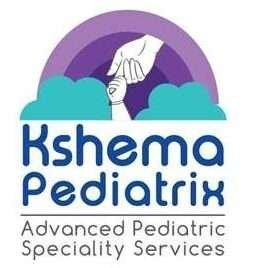Pediatric Kidney Specialist in Bangalore
30 Years of Clinical Practice
Dr. Ramesh Santhanakrishnan, a senior Pediatric Surgeon with nearly 30 years of clinical practice in Bangalore.
☑️ Specialized Pediatric Care: Focuses on advanced pediatric surgery and medical services.
☑️ Experienced Team: Led by Dr. Ramesh Santhanakrishnan with over 30 years of experience.
☑️ Comprehensive Services: Includes Pediatric Surgery, Urology, Neurology, ENT, Gastroenterology, and more.
☑️ Compassionate Care: Committed to providing ethical, child-friendly treatment.
☑️ Modern Facilities: Equipped with state-of-the-art medical equipment for pediatric needs.
A Sneek Peak into our Clinic
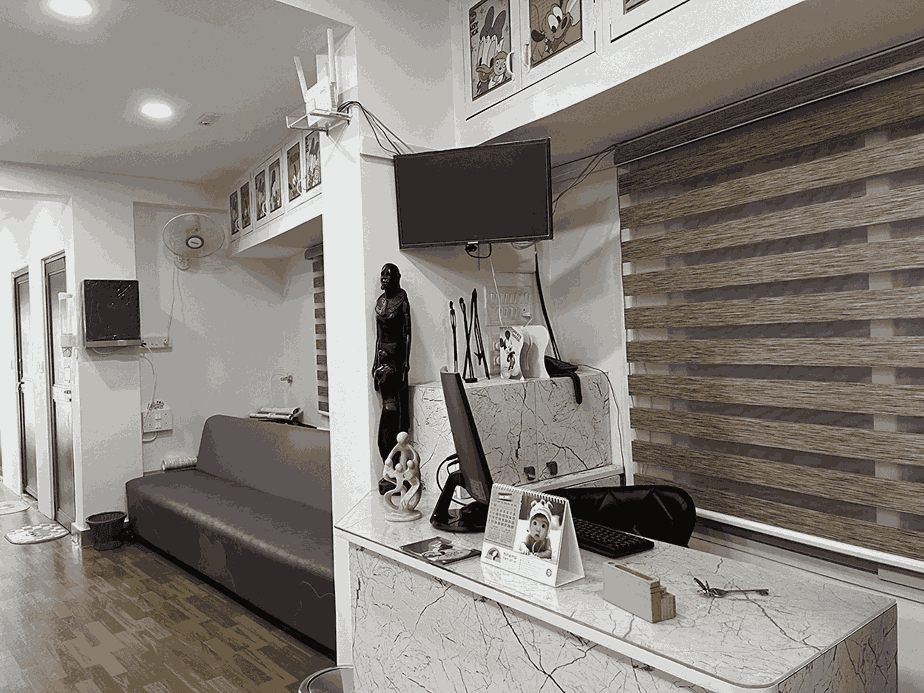
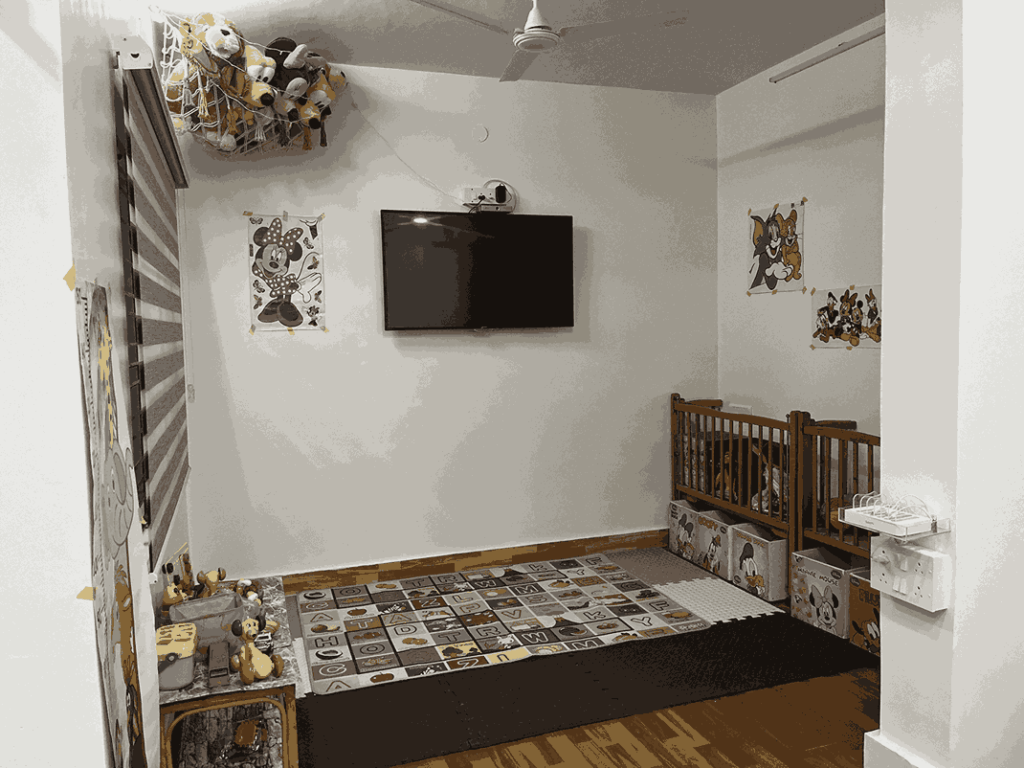
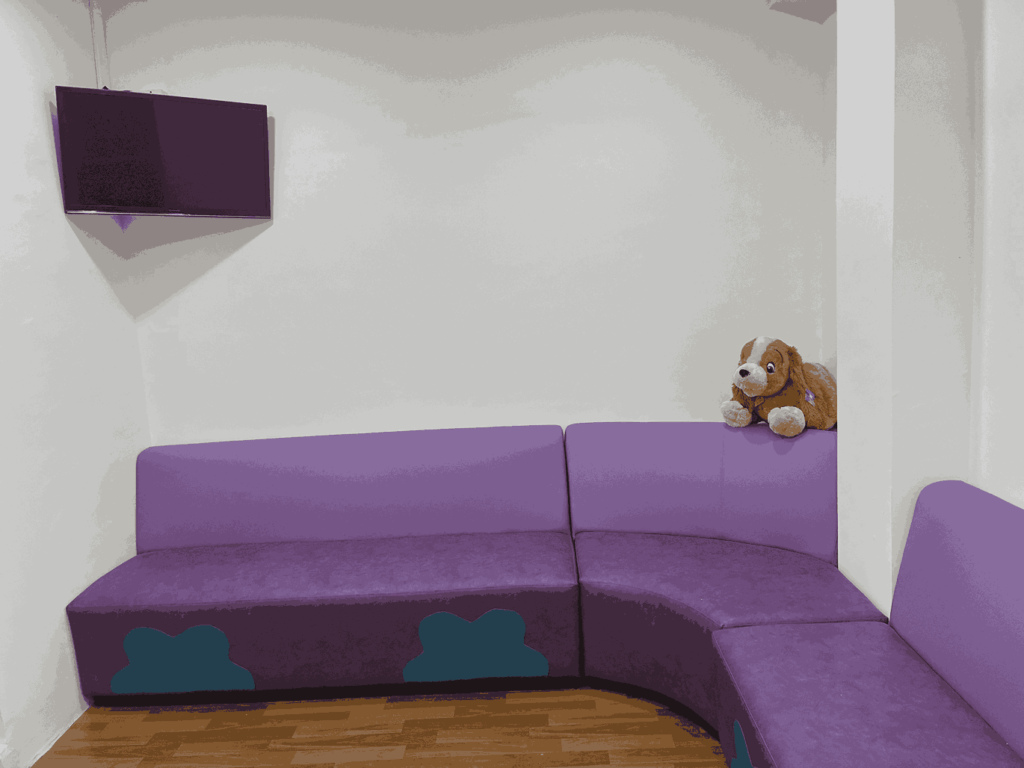
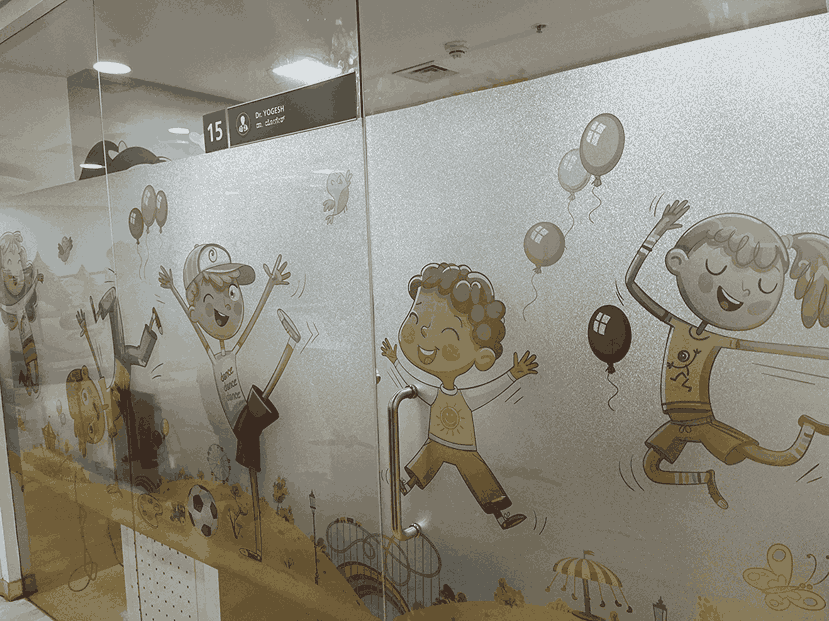
Testimonials
What Our Little Patients Say
“You’re the nicest doctor ever! Can you be my doctor forever?”
Doctor is very cooperative.
Clinic has plenty of toys for the kids to play.
Also, kids get chocolates for the consultation 🙂
Am thankful to Dr Ramesh, who has around 30 years of experience and highly excellence in pediatric surgeon.
My son had complicated hydrouretero nephrosis at the age of 2 and half years and he treated this very well and we bit worried at that moment. The way he was given assurance , we felt very happy and feel free . Now my son is 13 years old and there is no any health problems till now and as our concern , he is one of the Best paediatric surgeon. .. and he is the Best doctor.
Finally I would like to say Thank you for saving my child.
Fill the Form below to get in Touch
Pediatric Kidney Specialist | Pediatric Kidney Specialist Bangalore
The health of a child’s kidneys is an integral part of their overall health. The kidneys are essential for filtering waste, controlling blood pressure, maintaining fluid balance, and supporting growth and development. When they involve vital organs in children, such issues can have serious health consequences, and in some cases, may affect the child’s quality of life for years to come. This is where a pediatric kidney specialist can be extremely important.
Pediatric kidney diseases are resurgent in fast urbanizing cities like Bangalore, and recently, we have noted an increased incidence in the past few years. These highs come even through nature, and this could partly be due to global warming; higher rates of childhood obesity, suboptimal hydration habits, and genetics have also played a role in this upward trend. Conditions such as urinary tract infections (UTIs), nephrotic syndrome, and congenital kidney abnormalities are now increasingly being detected in children belonging to various age groups, ranging from newborns to adolescents.
Early referral to a pediatric nephrologist can be of significant benefit for the appropriate management of kidney diseases. Pediatric nephrologists are specifically trained to diagnose and treat complex kidney-related problems that children and teenagers may experience. The earlier it is detected, the better, as it helps sustain kidney function and, in many cases, prevents the need for dialysis or transplant.
Thankfully, Bangalore has become a pioneer in the field of pediatric nephrology in India and is blessed with some of India’s best children’s hospitals and expert kidney doctors. The best hospitals with specialized pediatric kidney care units include Rainbow Children’s Hospital, NU Hospitals, Manipal Hospitals, and many others, which offer highly advanced diagnostic and treatment capabilities. Equipped with the latest technology, expert consultants, and multispecialty teams, parents in Bangalore can be assured that their child is receiving the best kidney care for children that the world has to offer.
For routine kidney screenings, chronic kidney disease management or specialized care such as dialysis or transplants, there is no better choice than to seek the advice of a pediatric kidney doctor in Bangalore who can provide you and your child with the best in medical care from professionals that know how to interact with kids and meet their special needs.
What is Pediatric Nephrology?
A pediatric nephrologist is a physician who combines their training in pediatrics and nephrology to provide specialized care for children with kidney disorders. In addition to expertise in treating kidney disease that affects children, pediatric nephrologists apply their specialized knowledge to treat kidney disease at an earlier stage. From urinary tract infections and congenital disabilities to more complicated problems such as nephrotic syndrome, chronic kidney disease, and pediatric hypertension, they offer specialized care that also takes into account the child’s age.
The terms “kidney doctor,” “nephrologist,” and “kidney specialist” are often used interchangeably by many people. Although all nephrologists are kidney doctors, pediatric nephrologists are specially trained to address the specific aspects of kidney function and development in children. They take into account the child’s developmental milestones, nutritional status, emotional wellness, and long-term kidney health.
It’s also key to understand the difference between a pediatric nephrologist and a pediatric urologist. Although they are both concerned with the urinary system, their functions are quite different:
A pediatric nephrologist deals with the inner workings of the kidneys and helps children with internal physical problems, such as glomerulonephritis, chronic kidney disease (CKD), and electrolyte imbalances.
An example of this is a pediatric urologist managing structural and surgical issues of the urinary tract, including kidney stones, blockages, and vesicoureteral reflux.
In certain circumstances, pediatric nephrologists collaborate with pediatricians, pediatric urologists, dietitians, and transplant surgeons to ensure comprehensive care. With such an interdisciplinary approach, especially in cities like Bangalore, where state-of-the-art pediatric nephrology centers are available, children can be assured of the best possible, customized care.
Whether a child needs a basic evaluation for a urine test or comprehensive kidney care, meeting with a skilled doctor who specializes in kidney care for kids will help bring clarity, comfort, and confidence to families managing kidney support therapy for their children.
Conditions Treated by Pediatric Nephrologists
The pediatric nephrologist has the training to evaluate and treat a variety of kidney (renal) diseases, including electrolyte disturbances, hypertension, hematuria (blood in the urine), proteinuria (protein in the urine), kidney stones, acute and chronic kidney failure, glomerulonephritis, congenital and acquired kidney diseases, and abnormalities of the bladder and urinary tract. These experts offer holistic, personalized care designed to meet the specific needs of each child and family. Following is a comprehensive list of paediatric kidney diseases and conditions commonly treated by paediatric kidney specialists in Bangalore:
Acute Kidney Injury (AKI)
AKI is a rapid decrease in kidney function, typically caused by dehydration, infection, or certain medications. It requires immediate correction to restore kidney function to normal and prevent potential long-term harm.
Chronic Kidney Disease in Children
CKD in children is a deterioration of kidney function over time. It can be due to congenital disabilities, inherited conditions (such as polycystic kidney disease), long-term damage from other kidney diseases, or uncontrolled high blood pressure. Diagnosis and management are essential as prompt treatment can potentially delay the disease and prevent dialysis or transplant requirements.
Nephrotic Syndrome
It is characterized by severe loss of protein in the urine, swelling in the body, and low blood protein levels. It is frequently observed in young children and requires long-term follow-up. Specific treatment for nephrotic syndrome in Bangalore is steroid treatment, diet advice, and treating relapses.
Kidney Abnormalities From Birth (Induced By Disease, E.G., Posterior Urethral Valves)
Congenital structural malformations such as PUV may obstruct the urinary stream and cause injury to the developing kidneys. Pediatric nephrologists collaborate closely with pediatric urologists to follow up on such cases, often involving surgery and lifelong surveillance.
Infant with Polycystic Kidney Disease (PKD)
This inherited disorder results in the formation of cysts filled with fluid in the kidneys, leading to a decrease in kidney function. Infantile kidney diseases, such as PKD, call for early diagnosis using genetic and imaging methods and long-term renal care.
Vesicoureteral Reflux (VUR)
In VUR, the urine backs up from the bladder to the ureters or kidneys. This increases the risk of recurring UTIs and kidney problems. Early treatment can prevent scarring and preserve kidney function.
Urinary Tract Infection Among Children
Recurrent or severe urinary tract infections (UTIs) in children may indicate an underlying structural or functional abnormality of the urinary tract. Pediatric nephrologists assist in diagnosing the underlying cause and devise preventive treatment plans that may involve antibiotics or bladder training.
Hypertension in Children
It’s not just adults who need to worry about high blood pressure. Well, pediatric hypertension is an indicator of kidney disease or other underlying issues. Nephrologists support the monitoring, diagnosis, and treatment of hypertension in children.
Renal Tubular Disorders
These rare disorders cause the kidneys to lose their ability to maintain the right balance of acids, salts, and water. Children may exhibit symptoms such as poor growth, muscle weakness, or dehydration. The nephrologist uses specialized tests to diagnose and treat complex conditions.
Glomerulonephritis
This is an inflammation of the kidneys’ glomeruli, or filtering units, often precipitated by infections or autoimmune diseases. It can lead to blood in the urine, swelling, and high blood pressure. Early identification and treatment are crucial to prevent chronic kidney injury.
Why Early Detection Is Key
The prompt detection and treatment of pediatric kidney conditions can make a significant difference in long-term outcomes. Delays can also cause permanent kidney damage, growth problems, and lifelong needs for intervention, including dialysis or transplant. It’s up to parents to consult a pediatric kidney specialist in Bangalore as soon as something seems amiss; a swollen body part (anything from a finger to the ankles), high blood pressure, or frequent UTIs – Pediatric Kidney specialists in Bangalore.
Pediatric Kidney Diagnosis and Investigations
Early and precise diagnosis is crucial to effective pediatric kidney care. Children with symptoms such as swelling, high blood pressure, recurrent urinary tract infections (UTIs), or abnormal urination patterns are evaluated by a pediatric kidney specialist, who uses a number of diagnostic tools to determine the problem, assess kidney function, and examine kidney shape. They are essential both for establishing a diagnosis and for helping to direct therapy and monitor disease progression.
Blood and Urine Tests
Basic tests of kidney function in children. The first line of investigation involves conducting basic tests for kidney function in children, which typically include blood urea nitrogen (BUN), serum creatinine, and glomerular filtration rate (GFR). Urine tests reveal protein, blood, or infections, which are early signs of kidney function or inflammation.
Renal Ultrasound and Imaging Studies
A renal ultrasound for kids is a harmless, non-invasive procedure that provides an image of the size, shape, and structure of the kidneys and common urinary tract abnormalities. It is helpful as a guide to congenital anomalies, obstructions, or cysts. At some centers, caution: DMSA scans and / or MR urography may be recommended.
Renal Biopsy
In cases of nephrotic syndrome or glomerulonephritis, a renal biopsy can help examine the kidney tissue under a microscope. Definitive information on the cause of the kidney disease is obtained, allowing for an appropriate treatment to be identified.
Urodynamic Studies
For children with suspected bladder dysfunction or recurrent urinary tract infections (UTIs), urodynamic tests measure how well the bladder stores and empties urine. They are invaluable when the kidney is at risk of injury due to a blockage or backlog of urine.
Screening the High-Risk Child for Kidney Disease
For children with a family history of kidney disease, premature birth, congenital anomalies, or recurrent infections, preventive kidney screening is substantially beneficial. Early monitoring can help identify silent kidney problems before symptoms develop, allowing patients and their doctors to take a proactive approach to care and achieve better long-term results.
Lab backup and experienced paediatric nephrologists in Bangalore have made child kidney diagnosis more accurate, allowing treatment to be started on time for better results.
Treatment Options in Pediatric Nephrology
A pediatric nephrologist creates a customized plan for treating kidney disease in children, one that is both medically effective and child-friendly. There may be options from experimental drugs to exotic renal-replacement techniques to lifelong follow-up care.
Medical Management
Infection Control: Once the culture is known, rapid antibiotics are less likely to cause scarring from multiple UTIs.
Blood-pressure control: Close blood pressure control is key; children’s dosed antihypertensives (e.g., amlodipine, labetalol) are crucial to blood pressure control for the preservation of GFR.
Dialysis in Children
Some of the top centres in Bangalore, such as NU Hospitals, have 24-hour pediatric dialysis programmes:
Haemodialysis (HD): Blood is passed through an external machine three to four times a week, suitable for older children or those waiting for a kidney transplant.
Peritoneal Dialysis (PD) – The child’s peritoneal membrane is used as the filter. This type of dialysis is generally done at home, allowing the child to attend school and grow better. PD is particularly advantageous for small children, as it will allow for mild fluid displacements and better vascular access.
Kidney Transplant in Children
Indications: End-stage renal disease, progressive, rapidly progressive CKD, or dialysis intolerance.
Pre-transplant Evaluation: Immunological compatibility, infection assessment, and nutritional support.
Postoperative Care: Immunosuppression management, graft function surveillance, and psychosocial care are vital for long-term success. A few Bangalore centres compare favourably with international figures, and children undergo kidney transplants in Bangalore.
Nutritional & Lifestyle Management
Diet: Provision of controlled protein, balanced electrolytes, and sufficient calories for growth.
Fluid: A person-specific fluid strategy to avoid dehydration or overhydration.
Parental Guidance: Teaching about the timing of medication, warning signs of infection, and return-to-school protocols instills parental confidence and compliance.
Through a combination of leading-edge treatments and proven abilities to support children and their families, the pediatric nephrologists in Bangalore offer a full array of family-centered care that optimizes kidney function and quality of life.
What Makes Bangalore a Leader in Pediatric Nephrology?
Super-Specialty Hospitals: Rainbow, NU, Manipal, and Regal, with 60+ exclusive pediatric dialysis beds and India’s standards of transplant survival rates. (Rainbow hospitals, Nus hospitals, Manipal hospitals, Regal Hospital)
A Full Care Continuum – Starting with fetal nephrology counseling and including adolescent transition clinics, children receive age-appropriate care in one location, often featuring on-site pediatric urology, endocrinology, and nutrition services.
Skilled Talent Pool: The presence of fellowship-trained consultants with global experience further ensures the employment of evidence-based protocols following KDI GO and IA PD guidelines.
Advanced technology Access: We were the first to establish paediatric automated peritoneal dialysis and low-volume haemodiafiltration in Bangalore, as well as 3 Tesla (3T) renal MRI to obtain radiation-sparing imaging.
Research & Training Hub
Parent-Oriented EcoSystem: Support groups, webinars on medical emergency training, and mobile applications for medicine reminders facilitate efficient cooperation between doctors and caregivers – all of which make my job easier, here and there in the suburb, while looking for a children’s kidney specialist near me in your city.
Whether you need the best pediatric nephrologist in Bangalore, a pediatric kidney doctor at Manipal Hospital, or a children’s (pediatric) nephrology hospital in Bangalore, you can be assured that Bangalore’s holistic system of care ensures the finest in kidney care for every child, with a human touch.
When Should You Visit a Pediatric Nephrologist?
Detecting the first signs of kidney disease early in childhood can be life-changing. A parent whose child has any of the following symptoms should consider seeing a pediatric kidney doctor right away:
More frequent need to urinate or trouble urinating
Edema (swelling of the face, hands, or legs)
Hematuria (visible or detectable upon testing)
Bedwetting that continues beyond the traditional age range (often once the child is over 5–6 years)
Poor growth or lack of weight gain
These could be symptoms of a kidney problem or urinary tract condition that requires professional evaluation. Early consultation with a pediatric nephrologist will lead to the appropriate diagnosis and treatment that can prevent permanent kidney damage and enhance your child’s quality of life.
However, if they have blood in their urine , as well as other concerning symptoms, do not wait too long before consulting a reputable paediatric nephrologist in Bangalore for comprehensive care.
Pediatric Nephrology vs Pediatric Urology vs Pediatric Neurology
It is essential to recognize the distinctions among the subspecialties of pediatric nephrology, urology, and neurology, as they focus on separate, yet occasionally overlapping, health concerns in children.
The practice of pediatric nephrology is devoted to the kidney’s purpose, diagnosing and treating conditions such as chronic kidney disease, nephrotic syndrome, and hypertension caused by kidney complications. Pediatric nephrologists observe how effectively the kidneys filter blood and manage fluid.
Conversely, structural anomalies of the urinary tract and genitalia (including congenital anomalies, vesicoureteral reflux, obstructive uropathy, and urinary tract infections) would all fall under the purview of pediatric urology. Urologists usually receive the call for correction of those problems.
A pediatric neurologist is a distinct specialty that treats disorders of the brain and other parts of the nervous system, such as epilepsy, learning disabilities, and diseases of the muscle. We have added it here because many parents don’t recognize the names as they search for care.
Collaborative Care Example:
A child with a cause of the obstruction, such as posterior urethral valves, may require the services of both a pediatric urologist (to address the structural issue) and a pediatric nephrologist (to monitor kidney function). Similarly, following up on any neurological condition involving bladder control may necessitate coordination between neurology and urology.
Understanding the distinction helps parents find the right specialist for a child’s kidney or urinary tract problems and avoids confusion in searching for a pediatric nephrologist versus a urologist or a pediatric neurologist in Bangalore.
Long-Term Outlook for Children with Kidney Disease
With prompt detection and timely treatment, most children with kidney disease in Bangalore are leading an everyday, active life. Prognosis is markedly better where treatment has been adapted to slow the progression of the disease and effectively manage complications by the pediatric nephrologist.
CKD in children may necessitate the use of long-term medications, dialysis, and, in some cases, kidney transplantation. Regular medical care, good nutrition, and hydration support growth and development. Kidney transplant and dialysis care in Bangalore is on par with the rest of the world, conferring the best survival rates and quality of life.
In addition to physical health, mental health is essential. Children affected by kidney disease are likely to need psychosocial support, school re-entry help, and family counseling, which are crucial for coping and social development.
Parents often wonder, “How long can a child live with kidney disease?” Outcomes depend on the severity of the disease and adherence to treatment protocols, but these children can now expect a near-normal lifespan with the advances in pediatric nephrology.
How to Choose the Best Pediatric Kidney Specialist in Bangalore
Selecting the best pediatric kidney specialist for your child is a crucial decision you will make. The following are some of the factors to consider while looking for the best kidney doctor for children in Bangalore:
Experience and Expertise
Seek out nephrologists with full-time training in pediatric nephrology and a documented ability to handle complex childhood kidney diseases. One’s fellowship credentials and years of practice make a significant difference.
Hospital Infrastructure and Facilities
The best care requires access to advanced diagnostic tools, specialized pediatric dialysis units, and transplant programs. Ensure the hospital offers round-the-clock emergency nephrology services and multidisciplinary support.
Transplant and Emergency Aid
For children, kidney problems usually require immediate attention. Choose a center that has an established program for pediatric transplant services and work closely with experienced surgical teams for a successful pre- and post-transplant experience.
Patient Reviews and Testimonials
Helpful feedback that documents doctor-patient communication, staff helpfulness, and overall satisfaction. Seek out positive experiences reported in credible sources.
Child-Friendly Environment
A friendly environment, complete with play spaces, child life specialists, and caring staff, helps ease your child’s fears of visits and treatments.
Parental Guidance, Education & Support
Parents play a crucial role in the care of a child with kidney disease, overseeing treatment and monitoring for warning signs. Better outcomes are achieved by educating families about the disease, medications, and lifestyle changes.
There are support groups and counselling available in Bangalore where parents can share their experiences, receive emotional support, and obtain practical advice. They also help families – studies show caregivers often feel isolated during long-term care.
Some helpful hints include a medication protocol, a symptom diary, and regular follow-up visits with the pediatric nephrologist, along with close monitoring of the disease’s progression.
Appropriate children’s diets for kidney patients, shared by dietitians, ensure that children have a good amount of a balanced diet, not affected by kidney disorders. Children with kidney disease can look forward to improved health and a better life with informed parenting and appropriate measures.
FAQs
A physician who specializes in the kidneys is generally referred to as a nephrologist. For children, the specialist is known as a pediatric nephrologist or pediatric kidney specialist. These physicians diagnose and treat conditions related to the function of the kidneys, such as acute kidney injury, chronic kidney disease, and nephrotic syndrome.
Yes, a nephrologist is indeed a doctor who specializes in treating the kidneys and kidney-related diseases, so the words “nephrologist” and “kidney doctor” can be used interchangeably. However, an endocrinologist or paediatrician can also treat some kidney diseases themselves before referring the patient to a nephrologist for further treatment.
The word “pediatric” essentially refers to the specialty of medicine that pertains to the health and medical care of newborns, children, and adolescents, up to the age of 18 and sometimes until 21. A pediatric nephrologist is a physician who specializes in kidney diseases in children.
As chronic kidney disease (CKD) is a slowly evolving disease, the fact that it can be arrested and quality of life improved by early diagnosis and correct treatment is significant. For some children, kidney function can be stable for years, while in other cases, dialysis or a transplant is needed. Lifelong surveillance and compliance with treatment programs are essential.
Some of the common early symptoms are:
Your face, head, hands, or legs swelling up (edema)
Change in how often you urinate or in the appearance of your urine (dark, bloody, or foamy urine)
Fatigue or poor appetite
High blood pressure
Growth retardation or development lag
If your child is experiencing any of these symptoms, seek care from a pediatric kidney specialist immediately.
If your child has kidney issues related to function or disease (CKD, nephrotic syndrome), see a pediatric nephrologist. If the issue is a structural or surgical problem of the urinary system (such as vesicoureteral reflux or congenital abnormalities), then a pediatric urologist is the appropriate provider. In many cases, the two specialists work together to provide comprehensive care.
Life expectancy depends on the type and severity of kidney disease, as well as the kind of treatment a person receives. Thanks to advances in treatment, many children with kidney problems go on to lead long, productive lives. Timely identification, frequency of monitoring, and compliance with treatment significantly increase the chances of a good outcome.
Typical diagnostic measures include blood and urine tests, ultrasound of the kidneys, kidney biopsy, and urodynamic studies. These tests help evaluate kidney function and detect abnormalities in kidney function early.
Pediatric Nephrologists care for children with diseases and disorders of the kidney. They supervise dialysis, control hypertension, counsel patients on kidney transplants, and work with other specialists.
Yes, many children with kidney disease go to school and play and can do many of the things everyone else does, if they are cared for and treated the right way. Regular medical follow-up, dietary counselling, and mental health support are essential to ensure normal growth and development.
Conclusion
The health of your child’s kidneys is a crucial aspect of their overall well-being and growth. With early diagnosis and specialized care by an experienced pediatric kidney specialist, serious complications can be avoided, and long-term outcomes can be improved. Bangalore has some of the best pediatric nephrology hospitals and specialists, where the latest technology meets compassionate care.
If your child is experiencing any symptoms and you would like to discuss expert advice, don’t wait. Book an appointment with an experienced pediatric kidney doctor in Bangalore for an extensive evaluation and individualized treatment plan.

